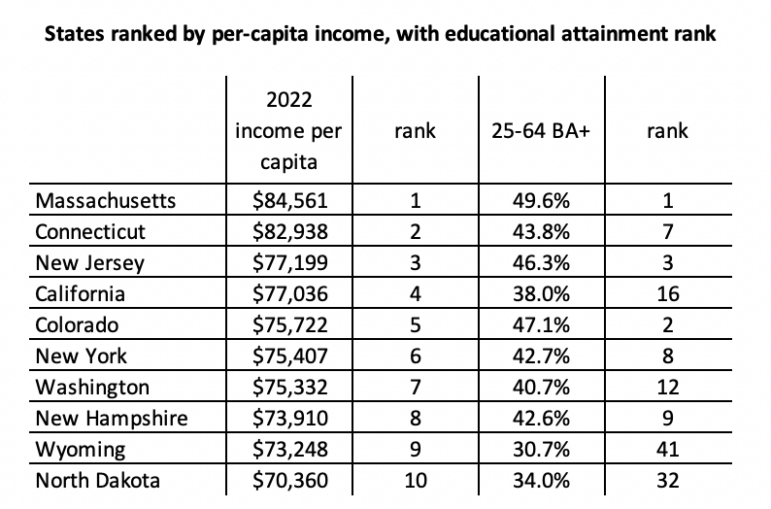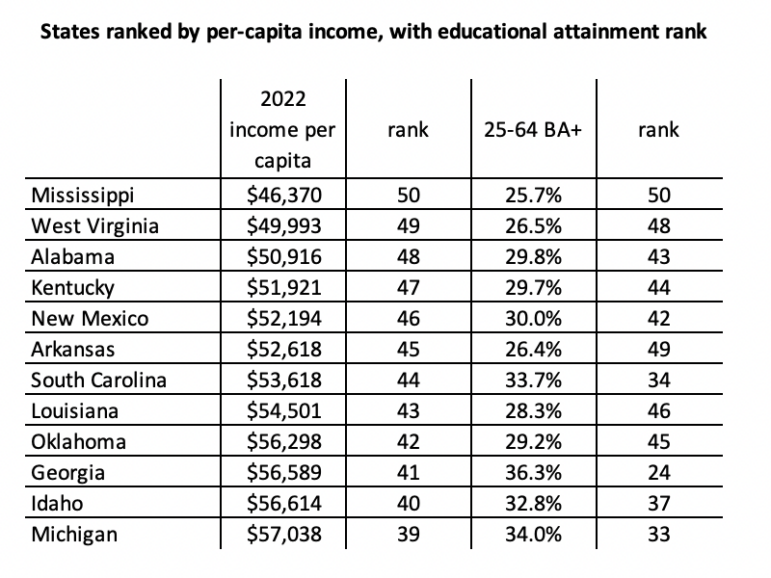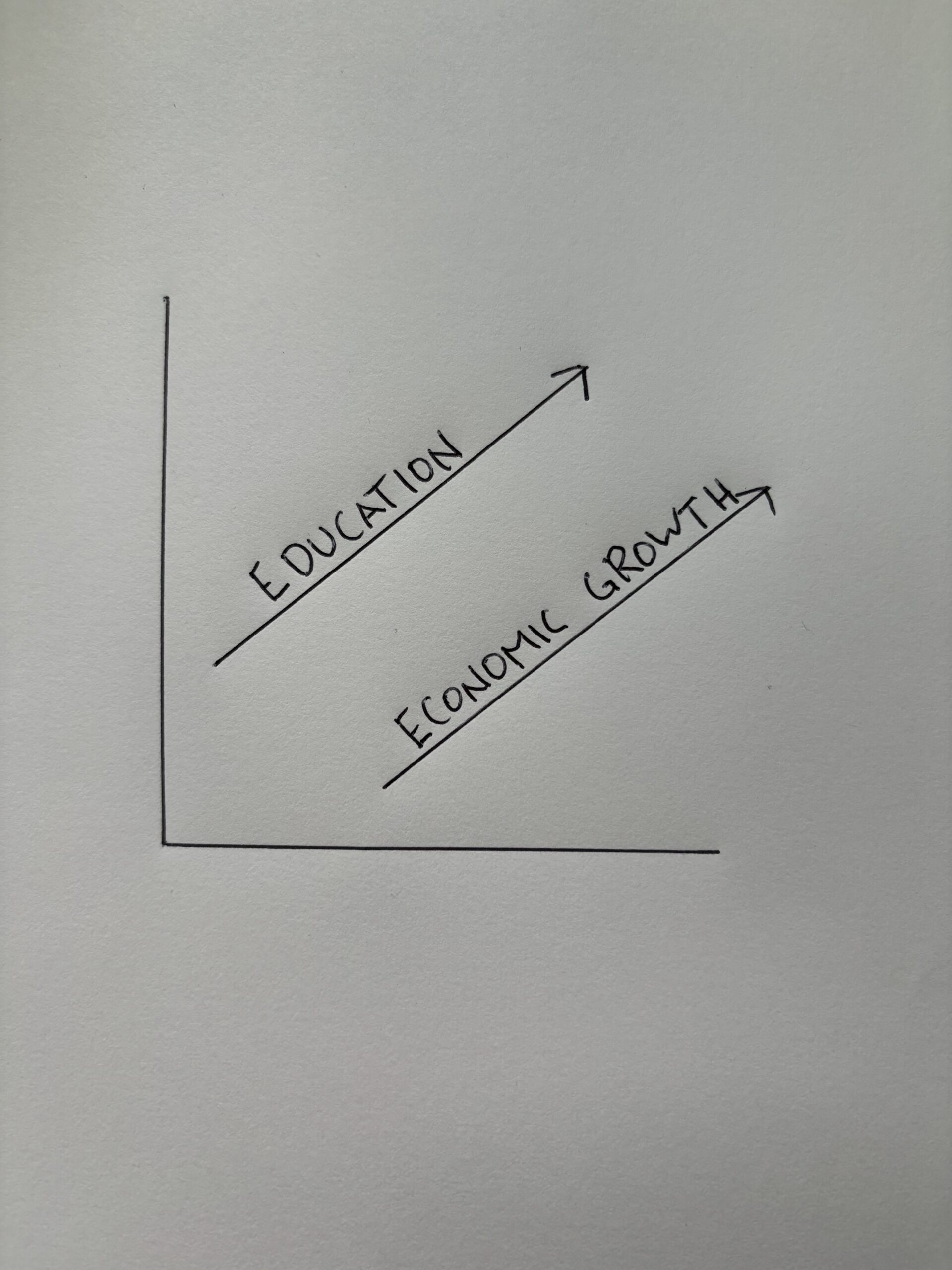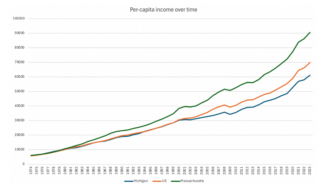Over the next several weeks, I’ll be writing a series of posts about the importance of educational attainment – both to our statewide economy and to individual economic mobility and prosperity – and how we should be designing our K-16 education system to increase the number of Michiganders who attain bachelor’s degrees.
This first post outlines why bachelor’s degree attainment is so critical to a state or region’s economic development.
Economic growth in today’s economy is driven by the so-called knowledge economy – a catch-all term for the large and growing share of the economy dedicated to industries like research and development, information, education, professional and business services, and financial activities. In just the past five-years, employment growth in high-education, high-wage, knowledge-economy jobs has increased by 26%. Employment in all other occupations has increased by just 0.7%. In other words, in today’s economy, economic growth means knowledge economy growth.
Given the way in which economic growth is inextricably linked to growth in knowledge-based industries, the economic prosperity of a given state is highly dependent on the human capital within that state. In the knowledge economy, economic growth is driven by the capacities of people – their innovations, discoveries, and ways of organizing collaborative work. This means the knowledge, technical skills, and wide range of “soft” skills (e.g., the ability to manage and work with others, the ability to clearly communicate, the ability to think creatively and critically) of the people in a particular economy are directly linked to the productivity of that economy.
Economists tend to measure this range of capacities, often referred to as “human capital,” by educational attainment. And, indeed, we see a striking correlation between the educational attainment of a given state and that state’s per-capita income, our preferred measure of economic prosperity and overall well-being.
The table below shows the top ten states in per-capita income in 2022. The final two columns of the table show the share of working-age adults (25-64) in that state with a bachelor’s degree or higher, and that state’s educational attainment rank.

Each state in the top ten in per-capita income is in the top twenty in educational attainment for working-age adults, with the exception of Wyoming and North Dakota, both energy-producing states (energy-producing states can generate high incomes without high educational attainment because of their access to energy resources like oil and natural gas).
If we look at the states with the lowest per-capita income, it becomes even more clear just how linked educational attainment and prosperity are. Here, we show the bottom 12 states ranked by per-capita income (note that Michigan is included in these bottom 12 states). Aside from Georgia, all of these states are in the bottom twenty in educational attainment, with BA attainment rates for working age adults below 35%.

In today’s economy, the educational attainment of your residents determines your economic fate.
There are two reasons why. The first is simply mechanical. Today’s high-wage jobs are disproportionately held by those with a bachelor’s degree or more, working in the knowledge economy. Nearly three out of every four jobs in the U.S. economy that pays what might be considered “upper middle-class” wages (~$86,500) requires a bachelor’s degree. The more of these workers you have, the higher your per-capita income will be.
But in addition, the places where you have large concentrations of highly educated workers are the same places where knowledge-economy firms locate, and where you see the birth of new firms and industries, yielding yet more knowledge economy work, in a virtuous cycle.
In short, any conversation about economic development ought to begin and end with educational attainment – both how we attract more highly-educated young folks to our state, and ensure many more young Michiganders are equipped with the knowledge, skills, behaviors, and mindsets needed to pursue and complete a four-year degree.
The posts in this series will outline the latter strategy – outlining the case for why our education system out to be designed in order to ensure that every young Michigander has the opportunity to pursue and complete a four-year college degree, and then mapping out a series of critical reforms needed to build that system. My next post will look at the economic returns to a four-year college degree for the individual, and the importance of a college degree to individual economic stability and mobility.







